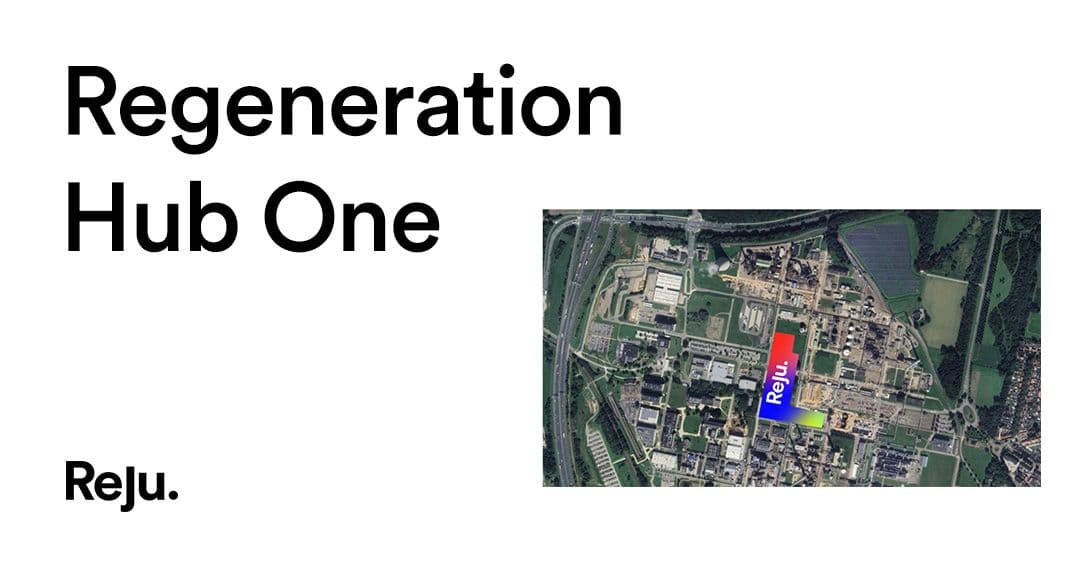Reju to build pioneering textile recycling hub in the Netherlands
The first Dutch first textile recycling hub, will transform textiles annually into sustainable materials with 50% lower emissions.
Published on May 20, 2025

© Reju
Team IO+ selects and features the most important news stories on innovation and technology, carefully curated by our editors.
French company Reju announced the establishment of its first industrial-scale textile recycling center, Regeneration Hub One, at Chemelot Industrial Park in the Netherlands. The new hub aims to produce 50,000 tonnes of recycled material with a 50% lower carbon footprint than virgin polyester.
Reju is an innovative company committed to revolutionizing the textile industry through sustainable practices. The company specializes in textile-to-textile recycling, which ensures materials from discarded textiles are regenerated into new fabrics, reducing the need for virgin resources. This approach plays a critical role in mitigating the significant environmental impact of textile waste, which has become a pressing issue across Europe. As textile consumption has risen from 17 kg per person in 2019 to 19 kg per person in 2022, the region simultaneously faces an increase in waste, with approximately 94 million tonnes of textiles discarded in 2022 alone.
Recycling textiles at scale
The construction of Regeneration Hub One at Chemelot Industrial Park in the Netherlands marks a significant expansion for Reju. It follows the opening of Regeneration Hub Zero in Frankfurt, Germany, in 2024.
The new facility is designed to handle 300 million textile articles annually, transforming them into 50,000 tonnes of rBHET, which is repolymerized into recycled Reju PET. Unlike traditional polyester production, Reju’s process results in 50% lower carbon emissions, contributing to a cleaner, more sustainable supply chain. By leveraging Chemelot’s advanced infrastructure, Reju can efficiently scale its operations, aligning with broader initiatives to promote circular economy practices within the industry.
Integrating into Chemelot's ecosystem
Reju's decision to locate the facility in the Netherlands was supported by several entities, including the Netherlands Foreign Investment Agency and the Invest in Holland network.
“At Chemelot, we are committed to fostering sustainable innovation and enabling circular solutions across industries,” said Koos van Haasteren, CEO of Chemelot. “Reju’s Regeneration Hub One aligns with our mission to drive the transition toward a circular economy. By integrating their advanced textile recycling technology within our industrial ecosystem, we can help accelerate the reduction of textile waste and set new benchmarks for sustainability in the materials sector.”
Minister for Climate Policy and Green Growth Sophie Hermans said: "With Reju’s decision to locate its innovative recycling plant at Chemelot, the Netherlands is achieving a first: the country’s first large-scale recycling facility where discarded textiles are turned into raw material for new and even better textiles. This is the kind of new industry we are aiming for – sustainable, circular, and future-oriented. It contributes to green growth and strengthens our position in circular chemistry. Despite the challenges in the sector, the Netherlands remains attractive for green industrial investments. With this new plant, we are actively building the industry of tomorrow, and I am proud that Reju has chosen the Netherlands."
